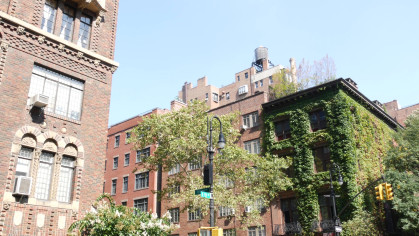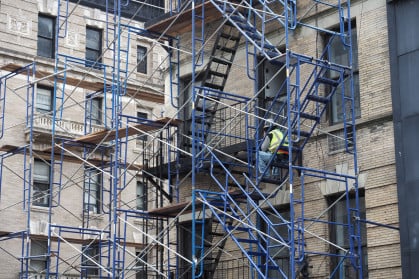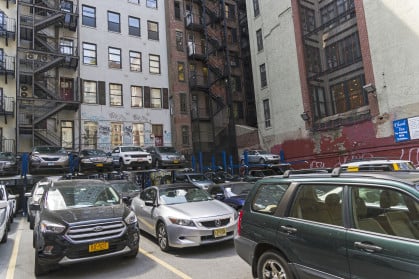Co-ops with ground leases can renew early under new law
- Land-lease co-ops can begin negotiations in advance of the final 30 years of their lease under a new law signed by Hochul
- The rule should make it easier for a co-op building to get a mortgage after negotiating a lease extension

Co-ops on government-owned land are not covered by the new law.
iStock
Co-ops that rent the land underneath their buildings now have a chance to renew their leases early, under legislation signed by Governor Kathy Hochul at the end of September.
The new law allows land-lease co-ops to renew their ground leases at any time, rather than right before the end of the term, which typically runs for 99 years. The legislation should give these co-ops a shot at securing a new mortgage, as banks have been unwilling to lend to co-ops with a ground lease that would expire before the debt was paid off, said Laura Sugarman, a partner and real estate lawyer at Benesch.
This became a financing problem for co-ops, Sugarman said. “Traditional lenders are not inclined to give a mortgage because they don't know what's going to happen to the value of the property” when the land lease is up," she said.
It’s been almost impossible for land-lease co-ops to secure a traditional, 30-year mortgage within 30 years of that ground lease expiring, said Rebecca Poole, director of membership at the Council of New York Cooperatives & Condominiums.
“This important improvement protects the viability of the cooperative and both its ability—and that of its shareholders and prospective shareholders—to obtain financing,” Poole said. “Now, negotiations can be initiated in advance of the final 30 years of the lease, which is the period when borrowing has been a serious challenge.”
Law exempts government-owned land
The law would protect some of the approximately 100 land-lease co-ops in New York City. Co-ops that sit on city, state, or federal land are exempt from the rule, including those on land owned by the New York City Housing Authority, though that’s not necessarily a reason for shareholders in these buildings to be concerned, Sugarman said.
“Presumably, if the state’s incentives are aligned with the city’s, then the city wouldn’t seek to raise the rent of a land lease above an amount that owners can afford, because they want to keep the housing affordable,” Sugarman said.
Legislation stops short of other proposals
The law is a little late to help shareholders at Carnegie House Tenants Corp., a land-lease co-op on Billionare’s Row that is facing a $1 million rent increase when its ground lease expires in 2025. Carnegie House’s residents fear that they won’t be able to afford the rent increase, forcing their co-op to dissolve and turn into rent-stabilized apartments.
In May, state legislators proposed two bills that would allow co-ops to buy their land for the same terms as any other deal a landowner would sign, plus give a co-op a right to renew its ground lease. But both failed to pass in the legislature.
Sign Up for our Boards & Buildings Newsletter (Coming Soon!)
Thank you for your interest in our newsletter. You have been successfully added to our mailing list and will receive it when it becomes available.




















